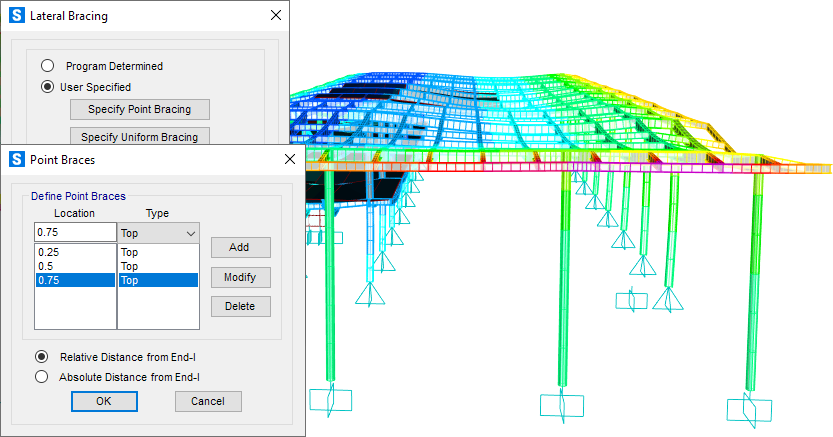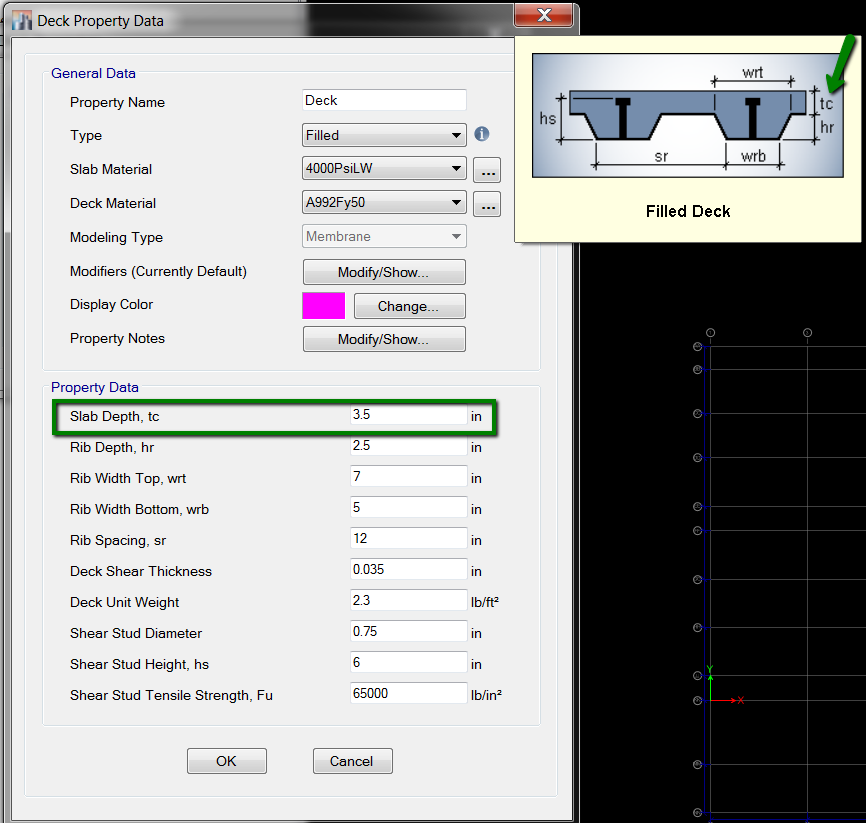SAP2000 is a full-featured program that can be used for the simplest problems or the most complex projects. This chapter describes program. Sophisticated and efficient meshing techniques. Engineers have many options when it comes to mesh generation in SAP2000. Notable meshing features include the ability to merge independently defined meshes among frame, shell and solid objects, coordinate tessellation with object orientation, and observe material boundaries to establish effective aspect ratios. SAP2000 v16.0.0 is a major new release, and significant new features have been added or enhanced since Version 15.2.1. For a full list of features and capabilities, please visit the SAP2000 news page at.
- Research
- Classwork
- Administrative Use
- Legacy VCL
- WVD
- Eos Labs
- Specific Teaching Lab
- University Owned Computers
- Virtualized environments
- Personally Owned Computers
From its 3D object based graphical modeling environment to the wide variety of analysis and design options completely integrated across one powerful user interface, SAP2000 has proven to be the most integrated, productive and practical general purpose structural program on the market today.
Product documentation is available at the SAP2000 Wiki.
User Agreement

Sap2000 Tutorial Pdf
- The SAP2000 Student Demo has a built-in license. If you get alerts that your license will expire soon, check back here for an updated version and/or license.
- For version 22, the vendor sent us a license extension that must be installed manually. You can update your license as follows:
- If you don't already have it installed, first install the SAP2000 v22 student demo version that expired 17 Jan 2021 using the below link.
- Download the
lservrcfile below and copy it to the following folder on your computer:C:Program FilesComputers and StructuresSAP2000 22 Student
Note: There will already be an existinglservrcfile there -- replace it with this newer version. - You should now be able to run SAP2000 with a license expiration of 7 December 2021.
Sap2000 Download
Skip to end of metadataGo to start of metadataDownload Sap2000
| Title | Description |
|---|---|
An overview of the design-check procedure for steel-frame structural systems. | |
Design reinforced-concrete columns and beams while considering combined performance measures and interaction-surface output. | |
Overview of the procedure for time-history analysis. | |
Guidelines for performing pushover analysis. | |
Guidelines for acceleration-load application in an arbitrary direction. Applicable to static, modal, and buckling load cases. | |
Introductory tutorial for using section cuts. | |
Several approaches to the modeling of composite sections. | |
A detailed and extensive procedure which describes the modeling, analysis, and design of a 3D steel-frame pipe rack system. | |
Guidelines and tutorial for modeling haunched steel-girder bridges. | |
This tutorial provides an introduction to the assignment of joint patterns. | |
Use the Section Designer to create a bulb-girder section with rounded corners. | |
Create custom cross sections by drawing polygonal shapes within the section designer, then modify or add to their geometry through reshape mode or interactive database editing. | |
Guidelines for defining vertical and horizontal layout lines, also known as baselines. | |
Guidelines for creating complicated joint patterns using interactive database editing. | |
Options and an example of how to obtain results for individual stages of a staged-construction load case. | |
An overview of the tuned-mass damper and guidelines for modeling the device. | |
Changing the confinement characteristics for reinforced-concrete Caltrans sections within the Section Designer. | |
Modify joints and apply constraints such that a pin connection allows crossing members to translate freely. | |
Guidelines for the manual modification of bridge bearings automatically created by the bridge modeler. | |
Create and modify a concrete bent which features a nonprismatic cap beam. Materials, sections, grids, and supports are defined. | |
Procedure for initiating influence-based moving-load analysis. | |
Procedure for initiating step-by-step moving-load analysis. Wilcom es 65 designer embroidery software, free download. | |
Tutorial included in the SAP2000 bridge-examples document. | |
Model from the SAP2000 Bridge Examples document. | |
Tutorial included with the SAP2000 Bridge Examples document. | |
Padma grahadurai old novels. Procedure for developing a model with variable girder spacing. | |
Guidelines and tutorial for creating a steel-girder bridge with variable flange thickness. | |
Setting the tolerance for cutting planes within 2D views such that all desired objects are displayed. | |
This tutorial describes a manual modeling process for wall-type bents within bride objects. | |
Procedure for modeling simply supported shells and coordinating their support systems. | |
Circular openings may be created within area objects, and the surrounding mesh may be improved. | |
Basic introduction to using time dependent material properties | |
Basic introduction to hinge application in SAP2000. | |
This tutorial provides guidelines for the application of loading induced by water pressure on an area object. | |
This tutorial demonstrates the modeling of vibrating machinery and its connection to a steel-skid structural system. | |
Application of point loads in the radial direction using the Advanced Joint Coordinate Axes feature. | |
Perform moment-curvature analysis on custom sections developed within the Section Designer. | |
This tutorial provides guidelines for lane definition according to either layout-line or frame-object configuration. | |
The process for renumbering structural joints is outlined in this tutorial. | |
This tutorial explains how interactive database editing allows users to create and copy load combinations from one model to another. | |
This tutorial demonstrates the modeling of a cold-formed steel truss system. | |
Procedure for locating the center of mass for a structural system. | |
The process for determining center of gravity is given in this tutorial. | |
Modeling of pulley assembly with the primary goal of applying the pulley assembly loads to the structure. |